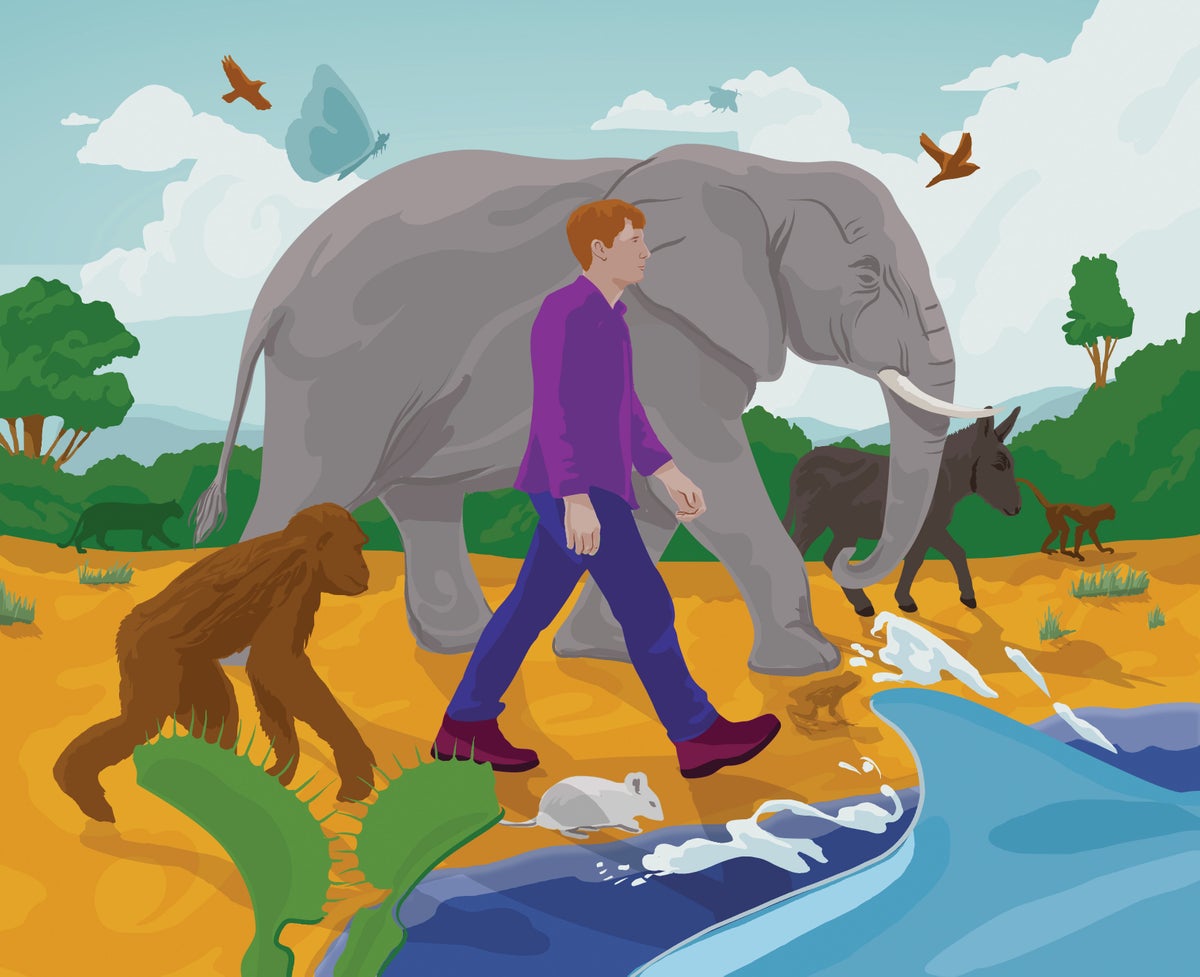
"In 1960, Jane Goodall observed a chimpanzee using tools, challenging the belief that only humans make tools. This sparked debates about what defines humanity."
"Leakey’s reply to Goodall prompted a reevaluation of definitions related to tools and human identity, suggesting a closeness between humans and chimpanzees."
"For centuries, scholars have insisted that only humans possess cultures, symbolic thought, and self-awareness, but recent findings question these distinctions."
"Darwin indicated similarities in cognitive abilities and emotions between humans and animals, suggesting any differences exist on a continuum rather than a clear divide."
In 1960, Jane Goodall's observation of a chimpanzee using tools led to a fundamental questioning of human uniqueness. This occurred when Louis Leakey suggested rethinking definitions of tools and humanity in light of chimpanzee behavior. Historically, scholars have maintained that humans are the only species capable of complex culture, symbolic thought, and self-awareness. However, evolving scientific evidence has emerged showcasing the cognitive and emotional capabilities of various species, leading to a reevaluation of what truly sets Homo sapiens apart from other animals. Darwin's perspective also aligns with these new findings, emphasizing a continuum of cognitive abilities across species.
Read at www.scientificamerican.com
Unable to calculate read time
Collection
[
|
...
]